Diwali, also known as the Festival of Lights, is the most important national festival of the year in India, celebrating the victory of good over evil and light over darkness. It tops all other festivals with its long-lasting and multi-faith celebrations in India.
The importance of Diwali for Indians is like Christmas's for Westerners. Many Indian companies take Diwali as the beginning of a new financial year. Each year over 1 billion people — Hindus, Jains, Sikhs, and some Buddhists, on the Indian mainland and oversees communities alike — celebrate these spiritual and joyous days.
For outsiders, probably the best-known parts of this festival are the dazzling burning clay lamps that line the streets, alleys, and doorways, and the rangoli — the creative and colorful designs made from powder, rice, flower petals, or sand on the floor. But for Indians, this festival has much more to it: children have vacations, employees get their bonuses, housewives enjoy shopping, homes are decorated, gifts are exchanged, and big meals are prepared. It sounds very much like Christmas, doesn't it!
Diwali is even more special this year — both socially and spiritually. As the shadow cast by the coronavirus is still here, celebrating this festival is more palpable for people who are eager to get rid of the past darkness and bad luck and welcome a new life full of light and wealth.

When is Diwali 2025?
Diwali, like many other Indian holidays, is based on the Indian lunar calendar, so the (internationally used) date of the festival changes each year, but it typically falls between mid-October and early November.
Diwali festivities usually last for 5 days. Each day has a different name and rituals. In 2025, Diwali falls on October 21st and the main celebrations starts from October 18th, and end with October 23rd.
The most important third day is the main day of Diwali — October 21st — when it is the best time to worship the Goddess Lakshmi (the god of wealth) and the time for a grand family feast.
Read more on Diwali 2025 Calendar: 5 Days of Celebrations
- 7-Day Golden Triangle India Tour
- 8-Day Royal Rajasthan on Wheels Tour
- 9-Day India Golden Triangle with Tiger Safari
Diwali Celebrations: Why and How It Is Celebrated
Diwali is a symbol of the triumph of good over evil and light over darkness. It is celebrated by many different religions in India and each religion has different pretexts for celebration. They celebrate this festival based on their own religious legends/histories and what is seen as important.
- Hindus celebrate Diwali to honor Rama's eventual defeat of the evil spirit Ravana.
- For Jains, this holiday is the celebration of one of their most revered leaders attaining Nirvana.
- For Sikhs, it is the celebration of Guru Hargobind's release from prison.
Read more about legends and stories of Diwali.
For most Indians, this festival celebrates the birth of the goddess Lakshmi, who is said to have emerged from the ocean on a new moon night (the night of Diwali), which is the 15th day of the 8th month on the Indian calendar (roughly in the period October 17 to November 14).
There are many different traditions that surround the 5-day celebrations of this holiday. Overall, it is considered an important time for introspection, cleansing, decorating, gathering, and puja (worship).
 Diwali 2025
Diwali 2025Day 1: Cleaning and Shopping
Most Hindus consider Diwali to be the start of a new year and use it as a time to get rid of the negativity of the past and perform rituals to bring luck and prosperity for the new year.
So, on the first day of Diwali, people clean their homes and go to Diwali markets and buy gold, silver, kitchenware, and other auspicious items to decorate their homes as well as new clothes to wear on the main day of celebrations. This is symbolic of getting rid of the old and bringing in the new.
 Buy auspicious items to decorate their homes on the local markets
Buy auspicious items to decorate their homes on the local marketsDay 2: Home Decoration
Houses are decorated to welcome Goddess Lakshmi and blessings of happiness, prosperity, and fame. Usually, people do their home decoration on the second day of Diwali (Choti Diwali).
Diwali or Deepavali means 'row of diyas (small clay oil lamps)', so the main decorations for Diwali are diyas and candles. Torans (decorative 'sacred gateways') are hung on doors and rangoli (colorful designs made on the ground with powder) are created at the entrance of homes to please and attract Lakshmi (the goddess of wealth).
Check out more traditional Diwali decorations.
Day 3 (The Main Day): Family Gatherings and Lakshmi Puja
Diwali is a large family celebration that often involves extended families coming together for a large meal and the exchange of presents.
During the main day (the third day of the celebrations), families get together, and the cities fill with lights and fireworks. Everyone puts on their most beautiful traditional clothing and takes a cleansing bath in the morning. In the evening, extended families come together for large meals, the diyas are lit, and a ritual is performed for the goddess of wealth called Lakshmi Puja.
 Family gatherings in Diwali
Family gatherings in DiwaliDay 4 and 5: Gift Exchanges
The fourth day of the festival is dedicated to celebrating the love between husband and wife. Men will often buy gifts for their wives on this day.
On the fifth day, families gather together to celebrate the special bond between brothers and sisters in a beautiful ceremony. During the ritual, sisters perform prayers and wish for the well-being and success of their brothers while tying a special bracelet called a rakhi around each brother's wrist. In return, brothers often give gifts and sweets to their sisters and promise to protect them.
Happy Diwali: Wishes and Greetings in English and Hindi
 Send Diwali Wishes to Your Friends and Family Members
Send Diwali Wishes to Your Friends and Family MembersDiwali is a joyous festival to honor the triumph of Good over Evil. Greetings and spoken/written wishes are good ways to show your love and good will.
The traditional greeting that is often said on Diwali is "shubh Deepavali" or "Diwali ki shubhkamnayein". Both greetings directly translate as 'have an auspicious Diwali'.
It is common for Indians to greet each other by just saying "Happy Diwali" (दीपावली की हार्दिक शुभकामनाएं Deepavali ki hardik shubhkamnayein). During the holiday, many people also send electronic greeting cards and messages to their friends and family wishing them a happy holiday.
Below are some hand-picked Diwali wishes and greetings in English and Hindi for your reference:
- Wishing you and your family a very happy and safe Diwali!
In Hindi: आपको और आपके परिवार को दीपावली की बहुत बहुत बधाई और शुभकामनाएं!
- May Diwali 2025 lead you onto the road of growth and prosperity. Happy Diwali!
In Hindi: दिवाली 2025 आपको विकास और समृद्धि की राह पर ले जाए। दीपावली की हार्दिक शुभकामनाएं!
More Diwali wishes and greetings
Diwali Food
 Trying festival sweets is a great way to get involved in the celebrations
Trying festival sweets is a great way to get involved in the celebrationsFood is a major part of the celebration of Diwali. During the festival, friends and relatives exchange Indian sweets. These sweets can be homemade or bought in markets.
Some of the most popular Diwali sweets include laddoos (a round pastry made from flour, butter, and sugar), barfi (white creamy bars made from condensed milk, sugar, and nuts), kheer (sweet rice pudding).
Learn more about what foods to try in India during Diwali.
Top Places to Celebrate Diwali
Diwali is the largest holiday of the year in almost every region of India, but each community celebrates Diwali for its own reasons and some have their own unique cultural nuances. Some of the most vibrant places to visit during Diwali are Varanasi, Jaipur, and Delhi.
In Varanasi, check out the Ganges River as it glows with thousands of floating clay lanterns called diyas.
In Jaipur, the Nahargarh Fort offers amazing views of the illuminated city below.
In Delhi, spend the day in the Diwali markets shopping for sweets, traditional clothing, and lanterns.
Check more popular places to celebrate Diwali here.
Visit India with Asia Highlights
Asia Highlights welcomes the chance to help you design your perfect trip to India. Check out the following links to learn more about our tours and get a head start on planning your hassle-free vacation today!
Get Inspired with Some Popular Itineraries
At Asia Highlights, we create your kind of journey — your dates, your destinations, at your pace. You can have any trip tailor made for your travel.



